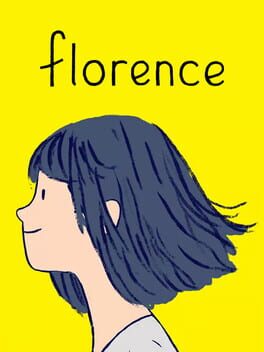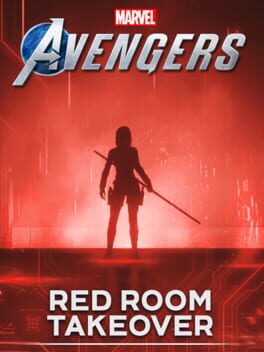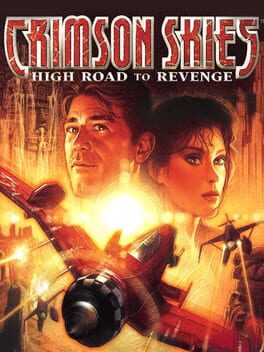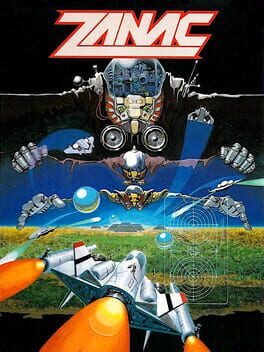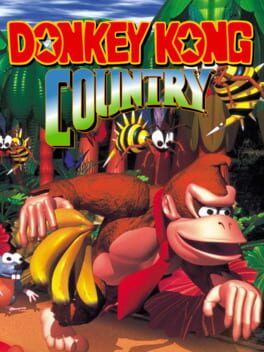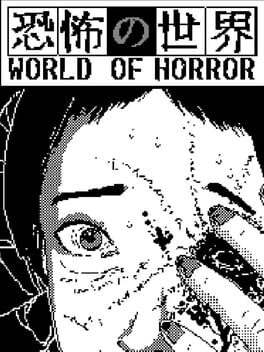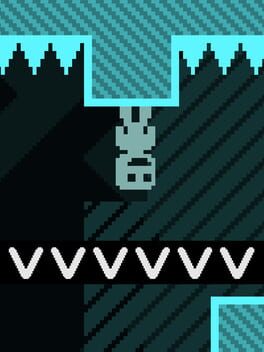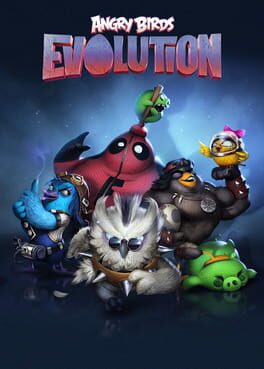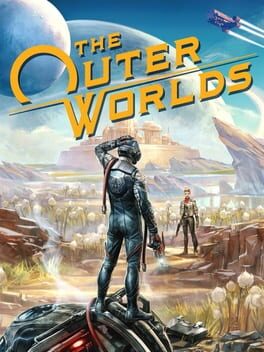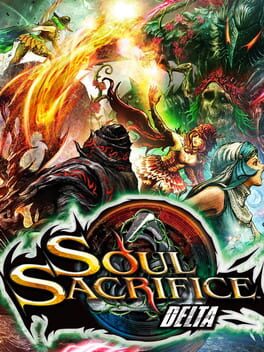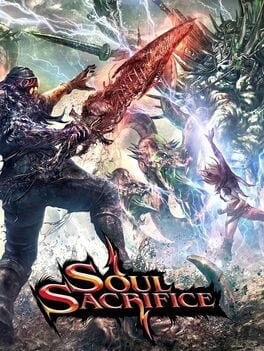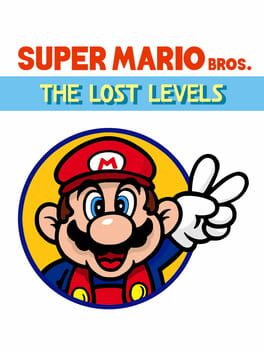1092 Reviews liked by JohnPips
Florence
2018
Marvel's Avengers gets another event and it's yet another disappointment. Surprised? I'm not. First of all we got like a pre event mini event that was just doing the same missions and collecting random stuff from dead enemies. That was terrible.
And I was hyped for the Red Room Takeover because the premise was actually interesting this time. Yelena has hacked the HARM rooms causing them to actually be deadly and we had to stop the hack by going in and beating a bunch of enemies. But that's basically it.
There are no cutscenes, no dialogue, not even audio logs. There are just a few sentences of text attached to each of the hacked HARM rooms. And you know how many new HARM rooms are added? 5. Only 5. But again, there is not even a story that's connecting them. There is not an ending cutscene that shows us beating Yelena's hacking.
Skip Yelena showing up, we don't even hear her. What the hell? What are you doing Crystal Dynamics? Are you even working on this game?
Yes it's better than the previous Tachyon Anomaly garbage but this is still bad. You get one free reward with an animated nameplate that barely moves. And all the other rewards are in the store. Spend, spend, spend. Don't bother to log in.
And I was hyped for the Red Room Takeover because the premise was actually interesting this time. Yelena has hacked the HARM rooms causing them to actually be deadly and we had to stop the hack by going in and beating a bunch of enemies. But that's basically it.
There are no cutscenes, no dialogue, not even audio logs. There are just a few sentences of text attached to each of the hacked HARM rooms. And you know how many new HARM rooms are added? 5. Only 5. But again, there is not even a story that's connecting them. There is not an ending cutscene that shows us beating Yelena's hacking.
Skip Yelena showing up, we don't even hear her. What the hell? What are you doing Crystal Dynamics? Are you even working on this game?
Yes it's better than the previous Tachyon Anomaly garbage but this is still bad. You get one free reward with an animated nameplate that barely moves. And all the other rewards are in the store. Spend, spend, spend. Don't bother to log in.
No More Heroes
2007
NMH Is one of the most annoying games I've ever played. Its one of my favorite games ever made.
That sentiment is really hard to explain without experiencing it for yourself. This games flow between its hack and slash gameplay into menial part time jobs is jarring. I hated it. I hated that I couldn't fast travel, that I had to ride this horrible feeling motorcycle, that I couldn't even sprint without finding the lovikov balls that are literally marked on the map so it's not even hard to find them. It's insane to me that SUDA51 did all of this, and made me miss it all when it was over.
Throughout my play through I had so much to say about how the game could be better. After finishing it, I wouldn't change a damn thing.
That sentiment is really hard to explain without experiencing it for yourself. This games flow between its hack and slash gameplay into menial part time jobs is jarring. I hated it. I hated that I couldn't fast travel, that I had to ride this horrible feeling motorcycle, that I couldn't even sprint without finding the lovikov balls that are literally marked on the map so it's not even hard to find them. It's insane to me that SUDA51 did all of this, and made me miss it all when it was over.
Throughout my play through I had so much to say about how the game could be better. After finishing it, I wouldn't change a damn thing.
Zanac
1986
Na época em que esse jogo lançou, Gradius estava em alta e não fazia muito tempo desde seu lançamento, e as inspirações aqui são claras, principalmente na questão dos power-ups. Porém, esse jogo segue um caminho diferente do próprio Gradius, e acaba chegando em um meio termo do que Gradius fez, com o que os SHMUPs que precediam ele faziam, é um jogo que, por mais que tenha vários estágios, a variação deles em si não é tão grande, e não exige movimentação mais precisa nem memorização, na real, é um jogo com muito mais foco em reação e eficiência, no caso reação para desviar das balar, e eficiência em usar todo o seu arsenal da melhor forma possível para lidar com seus obstáculos e pontuar, e é aí que o jogo realmente brilha, o ritmo do jogo é frenético, e cada power-up é bem criativo, tendo até mesmo uma variedade maior que Gradius nesse sentido, o que é realmente impressionante para a época. Mas, por mais que eu entenda a premissa, não dá pra negar que é um jogo cansativo e repetitivo para hoje em dia, mesmo que o foco não seja aprender os estágios, eles são longos e repetitivos, e ainda são 12 deles; uma run dura cerca de 1 hora, isso é longo até pros padrões atuais de SHMUP.
Donkey Kong Country
1994
World of Horror
2023
VVVVVV
2010
Não tenho muito o que dizer. Joguei 20min e achei uma droga.
Desinteressante, com design de gacha, nossa senhora, odeio isso. O gameplay se baseia em fazer uma espécie de "boliche/pinball" com os pássaros, mas a performance do jogo é um tanto sofrível com engasgo de frames, tirando a fluidez da experiência.
Péssima experiência.
Desinteressante, com design de gacha, nossa senhora, odeio isso. O gameplay se baseia em fazer uma espécie de "boliche/pinball" com os pássaros, mas a performance do jogo é um tanto sofrível com engasgo de frames, tirando a fluidez da experiência.
Péssima experiência.
The Outer Worlds
2019
Obsidian Entertainment lit the world on fire with Fallout: New Vegas. Many considered it superior to Bethesda's own offering, Fallout 3. The Outer Worlds was considered a spiritual successor to New Vegas. The same type of play style. A first-person RPG with shooting elements, a large story, companions, quests, and worlds to explore Many were calling it New Vegas in space, but is it really that, and does it live up to New Vegas?
The short answer is no. It falls short in nearly every way. The game really does feel like it's trying to be New Vegas with the funny humor in the propaganda posters and the overseeing mega-corporation that's trying to take over the Halcyon colony, and you're trying to get factions to agree with each other or side with them. The overarching story is pretty much forgettable, and that goes for most of the game. The story, characters, and side quests are mostly boring. I hate to really say this, as this game has sat installed on my PC for a couple of years now, and I would do a mission or two and quit because of just how dull the game is. The characters aren't memorable; there's no personality that stands out, and the overall mega-corporation humor that overshadows the game just feels like it's in the background.
The game is also incredibly short. I did several companion quests, dealt with all the factions, did multiple side quests, and still clocked in at around 12–13 hours. If you blow through the main story, you can finish it in 4-5 hours easily. I feel that contributes to the problem of the story and characters being uninteresting. There's not enough time for them to develop. Your entire crew is all humans, and they all just feel like generic Bethesda faces that were run through a random generator, and nothing stands out. I wound up skipping through a lot of dialogue because I just didn't care. I loved the characters and overall story of New Vegas. It was fresh and interesting, but this just feels like a generic space odyssey.
So what about the gameplay? It's tighter and more refined than New Vegas, but not by much. I hated the upgrade and skill tree systems. They felt generic and half-baked. The game's poorly balanced, where it's either way too easy and you mow down enemies, or they swarm you and kill you on the spot. I felt like none of the items you can use helped at all; stats didn't seem to matter, and the only thing that really did matter was your level in each respective category. You really want to get your speech levels high, including in engineering, as you can bypass a lot of battles with speech checks. Most of the weapons in the game felt pretty generic, and their weapon power didn't seem to matter.
Weapons can be tinkered with and modded at workbenches. Mods can be picked up and attached to various parts of guns. They can add elemental damage, increase clip size, add scopes, and do damage to different types of enemies, but outside of this, you can just tinker with the weapon's level, and future weapons don't matter. There were no cool, unique weapons found on bosses or for getting into hard-to-hack safes. Looting, like in Fallout, feels pointless as there is so much given to you. By the end of the game, I had thousands of rounds of ammo for each weapon type. You can specialize in long, pistol, or heavy weapons, but I just wound up dumping points into all three. Add a few good mods and tinker with the weapon up to your level, and you will stick with the same weapons through most of the game, rarely trading them out. You can equip up to four weapons, and I rarely ever used healing items until the final showdown, where you are swarmed by enemies in every room you go into.
Another balancing issue is with the factions. You can gain and lose reputation, and this will make guards attack you on-site in certain towns, locking out quests and not being able to finish any in this case. I wound up pissing off a couple of factions, had to abandon the quests there, and couldn't go to the shops either. This is really frustrating, and there's usually no way to get the reputation back. This can lock off companion quests and many side missions. Throughout the entire game, I mostly just mowed down every enemy in my way and used my companion's abilities when I was swarmed on occasion. You get a single ability to slow down time, which is useless because it slows down time too much.
The only thing I really enjoyed were the visuals. The game looks like a last-generation title, but the worlds are unique and look really good. I was interested in discovering new towns and new enemies, but that was really it. Everything else was either ignored, forgotten, or skipped because of how uninteresting most of the game is. I don't feel like this is Obsidian's best work or their love letter to New Vegas. The game is horribly optimized, looks dated, and feels dated because it is too safe. The game lacks any depth, and most may not even enjoy the shooting. The story and characters are boring and unoriginal, and the game's length doesn't justify this type of game in general. Who wants to play a 4-player RPG with supposed vast worlds to explore? You might enjoy blowing through the main story, but that's about it.
The short answer is no. It falls short in nearly every way. The game really does feel like it's trying to be New Vegas with the funny humor in the propaganda posters and the overseeing mega-corporation that's trying to take over the Halcyon colony, and you're trying to get factions to agree with each other or side with them. The overarching story is pretty much forgettable, and that goes for most of the game. The story, characters, and side quests are mostly boring. I hate to really say this, as this game has sat installed on my PC for a couple of years now, and I would do a mission or two and quit because of just how dull the game is. The characters aren't memorable; there's no personality that stands out, and the overall mega-corporation humor that overshadows the game just feels like it's in the background.
The game is also incredibly short. I did several companion quests, dealt with all the factions, did multiple side quests, and still clocked in at around 12–13 hours. If you blow through the main story, you can finish it in 4-5 hours easily. I feel that contributes to the problem of the story and characters being uninteresting. There's not enough time for them to develop. Your entire crew is all humans, and they all just feel like generic Bethesda faces that were run through a random generator, and nothing stands out. I wound up skipping through a lot of dialogue because I just didn't care. I loved the characters and overall story of New Vegas. It was fresh and interesting, but this just feels like a generic space odyssey.
So what about the gameplay? It's tighter and more refined than New Vegas, but not by much. I hated the upgrade and skill tree systems. They felt generic and half-baked. The game's poorly balanced, where it's either way too easy and you mow down enemies, or they swarm you and kill you on the spot. I felt like none of the items you can use helped at all; stats didn't seem to matter, and the only thing that really did matter was your level in each respective category. You really want to get your speech levels high, including in engineering, as you can bypass a lot of battles with speech checks. Most of the weapons in the game felt pretty generic, and their weapon power didn't seem to matter.
Weapons can be tinkered with and modded at workbenches. Mods can be picked up and attached to various parts of guns. They can add elemental damage, increase clip size, add scopes, and do damage to different types of enemies, but outside of this, you can just tinker with the weapon's level, and future weapons don't matter. There were no cool, unique weapons found on bosses or for getting into hard-to-hack safes. Looting, like in Fallout, feels pointless as there is so much given to you. By the end of the game, I had thousands of rounds of ammo for each weapon type. You can specialize in long, pistol, or heavy weapons, but I just wound up dumping points into all three. Add a few good mods and tinker with the weapon up to your level, and you will stick with the same weapons through most of the game, rarely trading them out. You can equip up to four weapons, and I rarely ever used healing items until the final showdown, where you are swarmed by enemies in every room you go into.
Another balancing issue is with the factions. You can gain and lose reputation, and this will make guards attack you on-site in certain towns, locking out quests and not being able to finish any in this case. I wound up pissing off a couple of factions, had to abandon the quests there, and couldn't go to the shops either. This is really frustrating, and there's usually no way to get the reputation back. This can lock off companion quests and many side missions. Throughout the entire game, I mostly just mowed down every enemy in my way and used my companion's abilities when I was swarmed on occasion. You get a single ability to slow down time, which is useless because it slows down time too much.
The only thing I really enjoyed were the visuals. The game looks like a last-generation title, but the worlds are unique and look really good. I was interested in discovering new towns and new enemies, but that was really it. Everything else was either ignored, forgotten, or skipped because of how uninteresting most of the game is. I don't feel like this is Obsidian's best work or their love letter to New Vegas. The game is horribly optimized, looks dated, and feels dated because it is too safe. The game lacks any depth, and most may not even enjoy the shooting. The story and characters are boring and unoriginal, and the game's length doesn't justify this type of game in general. Who wants to play a 4-player RPG with supposed vast worlds to explore? You might enjoy blowing through the main story, but that's about it.
Soul Sacrifice Delta
2014
Soul Sacrifice
2013
Soul Sacrifice is one of those games that looks cool but when you start playing you will be completely lost for a while. The game starts out with you being captured and put into a cage with bones everywhere. A book wakes up and starts talking to you. It’s a journal of a mad sorcerer, and he later explains you need to stop this powerful sorcerer, but in the meantime, you need to level up, gather strong weapons, and learn about his past. The story never really pans out and it just stretched so thin that you lose track of what’s going on. The presentation is interesting with literal storybook pages and an ominous narrator, but I would have liked something more.
You basically just select a mission and it will tell you what you’re supposed to kill. There are tons of fantastic and memorable lore wrapped around every enemy and battlefield. These stories read out like Grimm’s Fairy Tales and I was really hooked and couldn’t wait to read the next one. The enemy designs are really neat and unique as well as the bosses. You can customize your character’s looks, albeit not by much, and then it’s off to equip your weapons. Weapons are arranged in several categories of armor, arm, blood, power, shield, etc. You get weapons why defeating monsters and they are awarded to you. These weapons can be combined with dupes to give you a higher cast count, or they can be fused into new weapons. This is a great idea if the game didn’t constantly throw crappy weapons at you. Half way through the game and I was still dying several times per boss because I just couldn’t get any powerful weapons. It’s like they all did very little damage. Some bosses and enemies are weaker to certain elements and types. Some bosses you can’t get up close to at all so you need powerful projectile weapons. If you don’t know that going in, you have to restart and re-equip. This trial and error are frustrating and one of Soul Sacrifice’s many flaws.
If that wasn’t enough you are limited by how much you can use each item. You can equip up to six different weapons for each match. Some can be passive for healing, but if you run out of casts you break your weapon and it’s gone forever. You have to use a special vision mode to find hidden regen points for your weapons but they are limited. Several times I ran out of casts for all my weapons and had to restart because I couldn’t beat the boss. Thankfully a special sacrifice power allows you to do massive damage but at the cost of sacrificing something. One power lets you burn everything around you but your skin becomes burned and your defense is halved. To get rid of these conditions you need Librom’s tears and these are only granted every so often by exiting the book and checking his eye. A neat idea, but frustrating nonetheless.
That’s the combat and that is the sole focus of the game. It’s great and fun at first, but very frustrating and monotonous early on. You just fight the same types of battles over and over again and the same enemies as well. The only thing keeping you going on is to see more of the story. I honestly got tired of the side quests and just stuck with the story to get it over with. Another major part of the game is leveling up your health or magic. You can sacrifice or save enemies after they fall by holding L or R. This is a unique idea, but you can be stunned and killed while doing this. Your teammate can fall and you have to resurrect them or sacrifice them for a boost. Once you do this you need Librom’s tears to bring them back. They can revive you thankfully, but many times they died right when I did or vice versa. There’s also online co-op to solve this issue which really helps, but most people aren’t going to do this.
As it is, Soul Sacrifice suffers from constant repetition and a lack of polish. Not having powerful enough weapons, lackluster customization features, and a weak story kind of hurt this game. The graphics are fantastic, but that isn’t what makes a game good. I was hoping for more variety and more of a cinematic story, not a menu drove battle selector. If this game had more variety and something else besides killing the same enemies forever it would have been one of the Vita’s best games.
You basically just select a mission and it will tell you what you’re supposed to kill. There are tons of fantastic and memorable lore wrapped around every enemy and battlefield. These stories read out like Grimm’s Fairy Tales and I was really hooked and couldn’t wait to read the next one. The enemy designs are really neat and unique as well as the bosses. You can customize your character’s looks, albeit not by much, and then it’s off to equip your weapons. Weapons are arranged in several categories of armor, arm, blood, power, shield, etc. You get weapons why defeating monsters and they are awarded to you. These weapons can be combined with dupes to give you a higher cast count, or they can be fused into new weapons. This is a great idea if the game didn’t constantly throw crappy weapons at you. Half way through the game and I was still dying several times per boss because I just couldn’t get any powerful weapons. It’s like they all did very little damage. Some bosses and enemies are weaker to certain elements and types. Some bosses you can’t get up close to at all so you need powerful projectile weapons. If you don’t know that going in, you have to restart and re-equip. This trial and error are frustrating and one of Soul Sacrifice’s many flaws.
If that wasn’t enough you are limited by how much you can use each item. You can equip up to six different weapons for each match. Some can be passive for healing, but if you run out of casts you break your weapon and it’s gone forever. You have to use a special vision mode to find hidden regen points for your weapons but they are limited. Several times I ran out of casts for all my weapons and had to restart because I couldn’t beat the boss. Thankfully a special sacrifice power allows you to do massive damage but at the cost of sacrificing something. One power lets you burn everything around you but your skin becomes burned and your defense is halved. To get rid of these conditions you need Librom’s tears and these are only granted every so often by exiting the book and checking his eye. A neat idea, but frustrating nonetheless.
That’s the combat and that is the sole focus of the game. It’s great and fun at first, but very frustrating and monotonous early on. You just fight the same types of battles over and over again and the same enemies as well. The only thing keeping you going on is to see more of the story. I honestly got tired of the side quests and just stuck with the story to get it over with. Another major part of the game is leveling up your health or magic. You can sacrifice or save enemies after they fall by holding L or R. This is a unique idea, but you can be stunned and killed while doing this. Your teammate can fall and you have to resurrect them or sacrifice them for a boost. Once you do this you need Librom’s tears to bring them back. They can revive you thankfully, but many times they died right when I did or vice versa. There’s also online co-op to solve this issue which really helps, but most people aren’t going to do this.
As it is, Soul Sacrifice suffers from constant repetition and a lack of polish. Not having powerful enough weapons, lackluster customization features, and a weak story kind of hurt this game. The graphics are fantastic, but that isn’t what makes a game good. I was hoping for more variety and more of a cinematic story, not a menu drove battle selector. If this game had more variety and something else besides killing the same enemies forever it would have been one of the Vita’s best games.
Hollow Knight
2017
This has to be my favorite game of all time. Hollow Knight has a world and lore like no other, and the world just feels so real. This deep story is beautifully displayed through the creative world design and the amazing artwork. The gameplay is super fun and extremely satisfying. The bosses are all very unique and interesting. Everything about this game is absolutely perfect. The easiest 5 star I've ever given.
Elden Ring
2022
Existem jogos que se propõem a ter um nível de épico tão grande, mas tão grande, que sua ambição se torna sua ruína. Jogos como Zelda BOTW e Elden Ring são dessa categoria.
Não me entenda mal. A experiência de Elden Ring está, junto de BOTW, e acima deste, como melhores experiências em jogos de mundo aberto massivo, mas mesmo assim sofrem dos males que esse tipo de escopo me traz.
Isso significa que, em suas primeiras, 20, 40, 50 horas, Elden Ring é um deleite completo. A sensação de aventura em conjunto com as recompensas da exploração, somadas à letalidade dos combates e a tensão de perder recursos do personagem ao morrer fazem de Elden Ring, com tranquilidade, a melhor que já tive nesse estilo de jogo.
Se BOTW maravilha pela liberdade de exploração que permite escalar praticamente qualquer tipo de terreno e não ter amarras de onde ir, Elden RIng compensa a falta desse aspecto com um mundo recheado de perigos e segredos que recompensam muito melhor a curiosidade do jogador.
Funcionalidades/habilidades extra de customização de armas, itens únicos que permitem personalizar a construção dos personagens em conjunto com uma variedade de construções viáveis para experimentar, invocações, magias novas, linhas de aventura e até o próprio mapa que não contém todas as informações ao ser adquirido e vai sendo preenchido com a exploração, tudo isso contribui para instigar, saciar e premiar a sagacidade e a curiosidade do jogador, sem mencionar sua resiliência e persistência em vencer alguns desafios mais pesados.
Isso só é possível por conta do conjunto de design que Elden Ring se baseia, que tornou a série Souls tão popular. Apesar de não trabalhar com uma narrativa exatamente linear, mas mista e fragmentada, seguindo as próprias convenções da filosofia de design de Hidetaka Miyazaki, há um foco primário no gameplay, como acontece nos jogos da Nintendo, mas diferente desta, há também um trabalho muito mais considerado e profundo em matéria de enredo e construção do mundo, mas de uma forma híbrida que nem fica na superfície como jogos da Nintendo, tampouco descamba pra cinematografia da Sony, dois modelos frequentemente arremessados um contra o outro quando se trabalha narrativa em um jogo.
Assim, Elden Ring consegue adicionar a própria narrativa como recompensa à exploração, expandindo o leque de premiações concedidas ao jogador. E dessa forma, ele vai não só desenvolvendo o gameplay e o level design, mas apresentando fragmentos de uma narrativa complexa que exige trabalho do jogador para montar, quiçá da comunidade, uma vez que leva tempo demais para uma só pessoa explorar, catalogar e juntar tudo. E isso sem perder o aspecto poético, com personalidade bem marcada e subtexto. Decifrar a lore é o primeiro passo, interpretar é o próximo, com a beleza da possibilidade de discussão com outros jogadores, algo que aproxima bastante os fãs do modelo.
Elden Ring também conta com uma não linearidade considerável que permite ao jogador não precisar ficar batendo cabeça contra um chefe específico, já que ele pode desviar do caminho, ficar mais forte (ou muito mais forte), com mais recursos, e assim ter melhores condições de enfrentar uma determinada rocha em seu caminho. Caso o jogador não queira por si só aprimorar seu personagem e a si mesmo, ainda há bastante espaço para invocar personagens especiais ou mesmo algum amigo para jogar cooperativamente.
Vale destacar ainda, por fim, que Elden Ring faz um uso muito mais generoso de checkpoints, não só por meio dos pontos de salvamento, mas também estacas especiais que o põem de volta a ação em poucos segundos, tornando menos árdua e mais eficiente em matéria de tempo a tarefa de tentar novamente vencer um chefe mais complicado que o jogador acabou de falhar.
É um sistema que ainda precisaria de uns melhores ajustes, mas poder voltar rapidamente à ação torna bem mais agradável a experiência de um soulslike, e definitivamente Elden Ring merece esse adjetivo, até o ponto em que se torna enfadonho, cansativo e repetitivo, algo que acontece por conta de sua extensão colossal, reutilização de chefes e de assets inevitável pra algo desse tamanho. O frescor das ideias e ambientes vai sendo lavado embora, e a impaciência vai tomando conta de forma que, tendo passado 110 horas nesse universo, eu mal posso esperar pra nunca mais voltar a jogá-lo.
Não me entenda mal. A experiência de Elden Ring está, junto de BOTW, e acima deste, como melhores experiências em jogos de mundo aberto massivo, mas mesmo assim sofrem dos males que esse tipo de escopo me traz.
Isso significa que, em suas primeiras, 20, 40, 50 horas, Elden Ring é um deleite completo. A sensação de aventura em conjunto com as recompensas da exploração, somadas à letalidade dos combates e a tensão de perder recursos do personagem ao morrer fazem de Elden Ring, com tranquilidade, a melhor que já tive nesse estilo de jogo.
Se BOTW maravilha pela liberdade de exploração que permite escalar praticamente qualquer tipo de terreno e não ter amarras de onde ir, Elden RIng compensa a falta desse aspecto com um mundo recheado de perigos e segredos que recompensam muito melhor a curiosidade do jogador.
Funcionalidades/habilidades extra de customização de armas, itens únicos que permitem personalizar a construção dos personagens em conjunto com uma variedade de construções viáveis para experimentar, invocações, magias novas, linhas de aventura e até o próprio mapa que não contém todas as informações ao ser adquirido e vai sendo preenchido com a exploração, tudo isso contribui para instigar, saciar e premiar a sagacidade e a curiosidade do jogador, sem mencionar sua resiliência e persistência em vencer alguns desafios mais pesados.
Isso só é possível por conta do conjunto de design que Elden Ring se baseia, que tornou a série Souls tão popular. Apesar de não trabalhar com uma narrativa exatamente linear, mas mista e fragmentada, seguindo as próprias convenções da filosofia de design de Hidetaka Miyazaki, há um foco primário no gameplay, como acontece nos jogos da Nintendo, mas diferente desta, há também um trabalho muito mais considerado e profundo em matéria de enredo e construção do mundo, mas de uma forma híbrida que nem fica na superfície como jogos da Nintendo, tampouco descamba pra cinematografia da Sony, dois modelos frequentemente arremessados um contra o outro quando se trabalha narrativa em um jogo.
Assim, Elden Ring consegue adicionar a própria narrativa como recompensa à exploração, expandindo o leque de premiações concedidas ao jogador. E dessa forma, ele vai não só desenvolvendo o gameplay e o level design, mas apresentando fragmentos de uma narrativa complexa que exige trabalho do jogador para montar, quiçá da comunidade, uma vez que leva tempo demais para uma só pessoa explorar, catalogar e juntar tudo. E isso sem perder o aspecto poético, com personalidade bem marcada e subtexto. Decifrar a lore é o primeiro passo, interpretar é o próximo, com a beleza da possibilidade de discussão com outros jogadores, algo que aproxima bastante os fãs do modelo.
Elden Ring também conta com uma não linearidade considerável que permite ao jogador não precisar ficar batendo cabeça contra um chefe específico, já que ele pode desviar do caminho, ficar mais forte (ou muito mais forte), com mais recursos, e assim ter melhores condições de enfrentar uma determinada rocha em seu caminho. Caso o jogador não queira por si só aprimorar seu personagem e a si mesmo, ainda há bastante espaço para invocar personagens especiais ou mesmo algum amigo para jogar cooperativamente.
Vale destacar ainda, por fim, que Elden Ring faz um uso muito mais generoso de checkpoints, não só por meio dos pontos de salvamento, mas também estacas especiais que o põem de volta a ação em poucos segundos, tornando menos árdua e mais eficiente em matéria de tempo a tarefa de tentar novamente vencer um chefe mais complicado que o jogador acabou de falhar.
É um sistema que ainda precisaria de uns melhores ajustes, mas poder voltar rapidamente à ação torna bem mais agradável a experiência de um soulslike, e definitivamente Elden Ring merece esse adjetivo, até o ponto em que se torna enfadonho, cansativo e repetitivo, algo que acontece por conta de sua extensão colossal, reutilização de chefes e de assets inevitável pra algo desse tamanho. O frescor das ideias e ambientes vai sendo lavado embora, e a impaciência vai tomando conta de forma que, tendo passado 110 horas nesse universo, eu mal posso esperar pra nunca mais voltar a jogá-lo.
O gameplay é tal e qual o primeiro Super Mario Bros, com algumas pequenas melhorias. O jogo soa como uma expansão barata com apelo na dificuldade, também brincando com subversões de expectativas causadas por convenções estabelecidas no jogo anterior.
Eu ainda odeio do fundo da alma os castelos que usam uma espécie de quebra-cabeça em forma de um loop espacial. Acho eles chatos, pautados em força bruta e que não agregam em muito ao jogo.
Fico feliz que tenha poupado o ocidente desse título ruim e tenha apresentado Doki Doki Panic como Mario 2 ao invés de Lost Levels.
Eu ainda odeio do fundo da alma os castelos que usam uma espécie de quebra-cabeça em forma de um loop espacial. Acho eles chatos, pautados em força bruta e que não agregam em muito ao jogo.
Fico feliz que tenha poupado o ocidente desse título ruim e tenha apresentado Doki Doki Panic como Mario 2 ao invés de Lost Levels.
